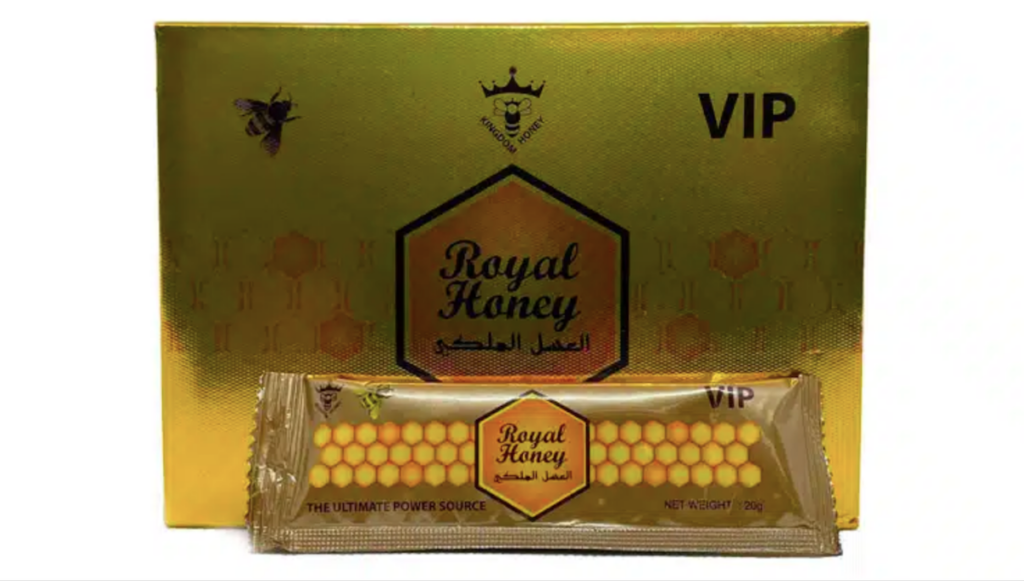Products Claiming to Enhance Sexual Performance Have Experienced a Surge in Popularity
No longer relegated to the shelves of gas stations and corner stores, dietary supplements or other products claiming to enhance sexual performance have experienced a surge in popularity within e-commerce marketplaces in recent years.
This growing trend has raised significant health concerns for consumers as unscrupulous merchants have sought to exploit often limited government resources relating to the regulation of supplements and conventional foods in order to sell products tainted with hidden drug and chemical ingredients. A common product cited in recent actions is “Royal Honey” — a sexual enhancement product.
The FDA recently issued warning letters to four companies for illegally selling tainted royal honey products that potentially pose significant health risks to consumers in addition to publishing public notifications relating to 18 honey-based products.
These regulatory actions were issued after laboratory testing found several popular “Royal Honey” products to contain prescription drug ingredients not listed on the product labels, including tadalafil and sildenafil, the active pharmaceutical ingredients in the drugs Cialis and Viagra.
While tadalafil and sildenafil are FDA-approved for the treatment of erectile dysfunction, both drugs are available by prescription only and should be used only under the supervision of a licensed health care professional due to potential health risks. These undeclared prescription ingredients have the potential to interact with other drugs, such as nitrates, commonly taken by individuals with conditions like diabetes, high blood pressure, high cholesterol, and heart diseases as part of their disease management regimen. These drug interactions can lead to dangerously low drops in blood pressure, putting individuals at a high risk of adverse and potentially fatal effects.
Royal Honey Packaging Excludes Critical Pharmaceutical Grade Ingredients
Royal Honey packaging prominently features phrases such as “100% Natural” and “With Royal Jelly, Ginseng, and Rainforest Herbs,” potentially misleading consumers into thinking they are purchasing a food product or “natural” supplement. While the inclusion of these active pharmaceutical ingredients is prohibited by law, the FDA does not test all supplements and food products on the market for harmful hidden ingredients. Enforcement actions and consumer advisories only cover a fraction of the tainted over-the-counter products on the market, and even when violative merchants are caught, low barriers to entry for supplements and food products make it easy for unscrupulous actors to rebrand and continue selling these harmful products.

Royal Honey products are often marketed as natural despite containing active pharmaceutical ingredients. | Images via FDA
Legitscript Ensures Your Business Remains Compliant with US and International Regulations
Although these products have been the subject of a number of recent regulatory actions in the US, these tainted products have been cited by regulators worldwide. LegitScript routinely monitors regulatory actions in more than 100 jurisdictions, and has logged regulatory actions regarding tainted honey products from Japan, Saudi Arabia, Denmark, and a number of other jurisdictions.
Despite the dynamic and complex landscape of supplement and nutraceutical regulation in the digital marketplace, LegitScript remains vigilant in monitoring regulatory updates and trends related to these products, along with their channels of sale and distribution. Merchants marketing food products and supplements containing undisclosed drug ingredients violate the law and put consumers at considerable risk, and LegitScript remains committed to promptly reporting merchants that pose an elevated risk to consumers and payment processors.
LegitScript has the world’s largest database of problematic drugs, supplements, and other healthcare products.
Contact us for access or to learn more about how we can help you remove these products from your ecosystem.




